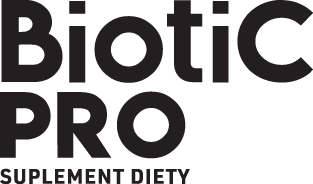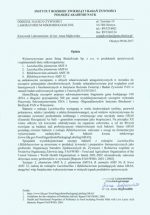
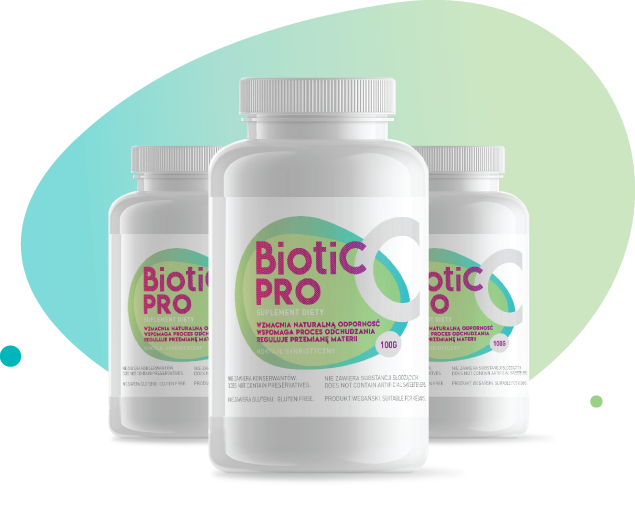
_
Probiotics – key information
Probiotic – the word “probiotic” comes from Greek “pro bios” and means “for life”. According to the definition presented by Food and Agriculture Organisation of the United Nations (FAO) and World Health Organisation (WHO), probiotics are “live microorganisms which when administered in adequate amounts confer a health benefit on the host”.
Bacteria of genera Lactobacillus and Bifidobacterium are examples of microorganisms with probiotic properties. Of course, there are many others. However, only selected and precisely specified strains of a particular species show health-promoting properties confirmed by clinical studies.
Probiotics applied in a diet may contribute to maintaining microbiological balance of the digestive tract, both in terms of quality and volume. The key roles of probiotic bacteria include:
- Engrafting in intestines and eliminating pathogenic microorganisms
- Supporting the immune system
- Preventing from intestine infections

The thesis that all lactic acid fermentation bacteria used in production are probiotics is not true, as not all strains evoke the same health-promoting result in a human body. Probiotic properties of bacteria are features of a particular strain (biotype) of a given species. Advantageous properties of the bacteria are strain-dependent, i.e. they are characteristic for one, selected strain of the bacteria.
_
The structure of Bifidobacteria includes two unique strains of lactic acid bacteria: Lactobacillus plantarum AMT14 and Bifidobacterium animalis AMT30 (minimum up to 50,000,000 colony-forming units). BiotiC PRO also contains inulin and vitamin C. It is an outstanding and practical product.
Strains included in the supplement may contribute to improving the quality and volume of the intestine microbiome and support its functioning. Such impact of the synbiotics may strengthen the natural immunity, improve the physical condition and endurance of the body and positively affect the metabolism.
Bacteria strains in BiotiC PRO
Bacteria of the genus Bifidobacterium positively affect the work of the digestive tract and defence mechanisms of intestines:
- Reduce the risk of invasion of pathogenic bacteria
- Participate in biosynthesis of vitamin K and vitamins B
- Strengthen the synthesis of mucin which is contained in mucus
- Help to reduce inflammations in the body
- Regulate motility of the digestive tract and restore the proper laxation cycle
Bifidobacterium animalis AMT30 is the unique strain with outstanding probiotic and antagonistic properties acting against potential pathogenic bacteria in the digestive tract. Its impact has been confirmed by the results of in vitro research.
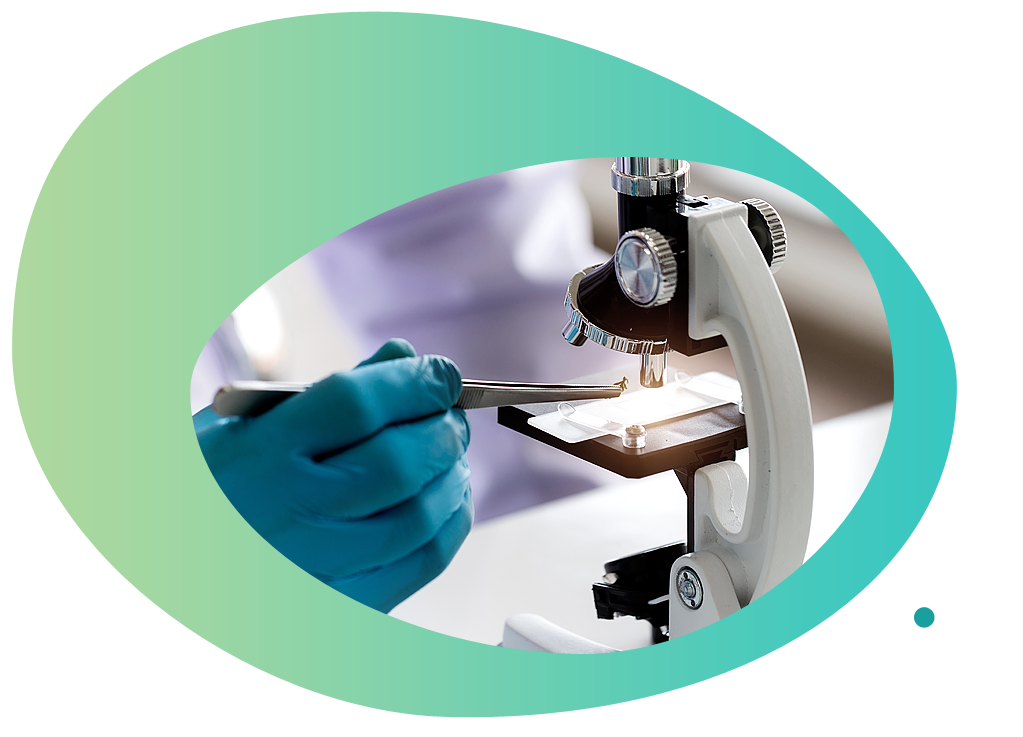
Bacteria of the genus Lactobacillus may help to decrease the number of pathogens (fungi, bacteria) and improve the immune system:
- They participate in regulating pH outside mucosa and stabilising cell junctions of intestine epithelium, which results in reinforcement of the intestinal barrier
- They play important role in proper metabolism and support correct fermentation and breakdown of carbohydrates
- They decrease the amount of leptin in blood serum – hormone which is responsible for the sense of satiety and hunger
- They have influence on regulating metabolic processes and obesity
Lactobacillus plantarum AMT14 is the unique strain with outstanding probiotic and antagonistic properties acting against potential pathogenic bacteria in the digestive tract. Its impact has been confirmed by the results of in vitro research.
Inulin – natural polysaccharide in the group of fructans, composed of glucose and fructose. Because of its structure and particle junctions, inulin is not digested in the human digestive tract but it is an ideal environment for the growth of microbiome. Inulin:
- Supports the development of intestinal bacteria which are advantageous for health
- Stimulates creating anti-inflammatory cytokines
- Affects lipid balance and insulin sensitivity of body tissues, and secretion of satiety hormones controlling appetite
Vitamin C – plays important role in maintaining good physical condition. It participates in:
- Synthesis of collagen, steroid hormones and carnitine, which promotes healing of wounds and bone fractures
- Metabolism of amino acids, absorption of non-haem iron and concentration of this element in bone marrow, spleen and liver, which prevents anaemia
- Metabolism of fats, cholesterol and bile acids
- Preserving the oxidation-reduction potential in cells and the transport of electrons
- Protection of vitamin E
- Strengthening the immune system of the body against bacterial and viral diseases, as it has antibacterial and bacteriostatic properties
- Destroying oxygen radical, hydroxyl radical, singlet oxygen and peroxides
Mannitol – organic chemical compound, polyol. It exists in the form of two enantiomers, usually labelled as D and L. It is a great source of easily absorbed carbon, that is why it is added to culture mediums. It is sweet so diabetics can use it to sweeten food. In pharmacy, mannitol is used for its health-promoting properties but also as a sweetener, filler and carrier (pills, granules, candies, wax matrix tablets). It binds several metals, so it is added as a stabiliser to mineral-vitamin supplements. Mannitol:
- Is a kind of energetic and protective material, it is an element of tissues and is osmotically active
- Participates in regulating osmotic pressure in cells
- Is used as substance decreasing pressure of cerebrospinal fluid (intravenous use) and as a diuretic
- Stimulates development of symbiotic microflora; once taken orally, it improves laxation
Ingredients: corn starch, inulin, mannitol, vitamin C, milk acid bacteria Lactobacillus plantarum AMT 14 minimum 20,000,000 colony-forming units/g (0.2×108 CFU/g), Bifidobacterium animalis AMT30 minimum 20,000,000 colony-forming units/g (0.2×108 CFU/g).
Contraindications for use of BiotiC PRO
Lactobacillus plantarum AMT14 and Bifidobacterium animalis AMT30 are bacteria that are capable of survival, metabolic activeness and growth in a proper place of the body. They are resistant to bile salt and acidic environment of gastric juice. That’s what makes them unique.
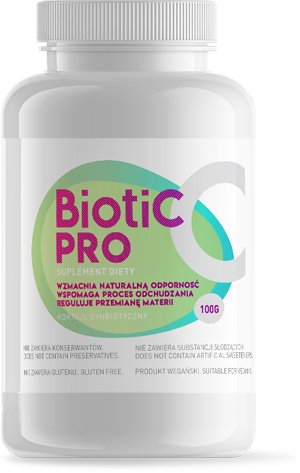
Buy BiotiC PRO
Add it to your breakfast every day.
Check effects after a month.
